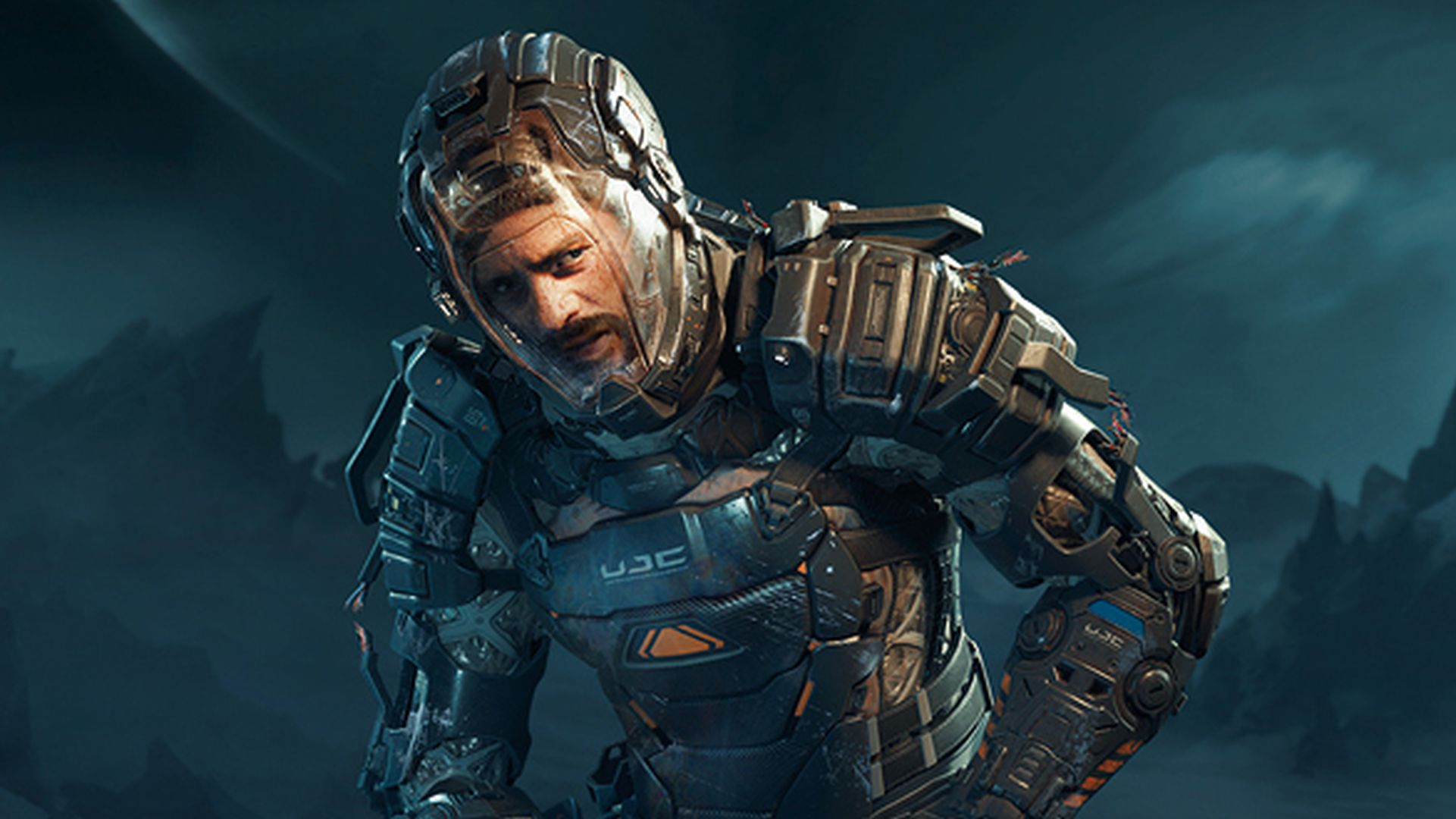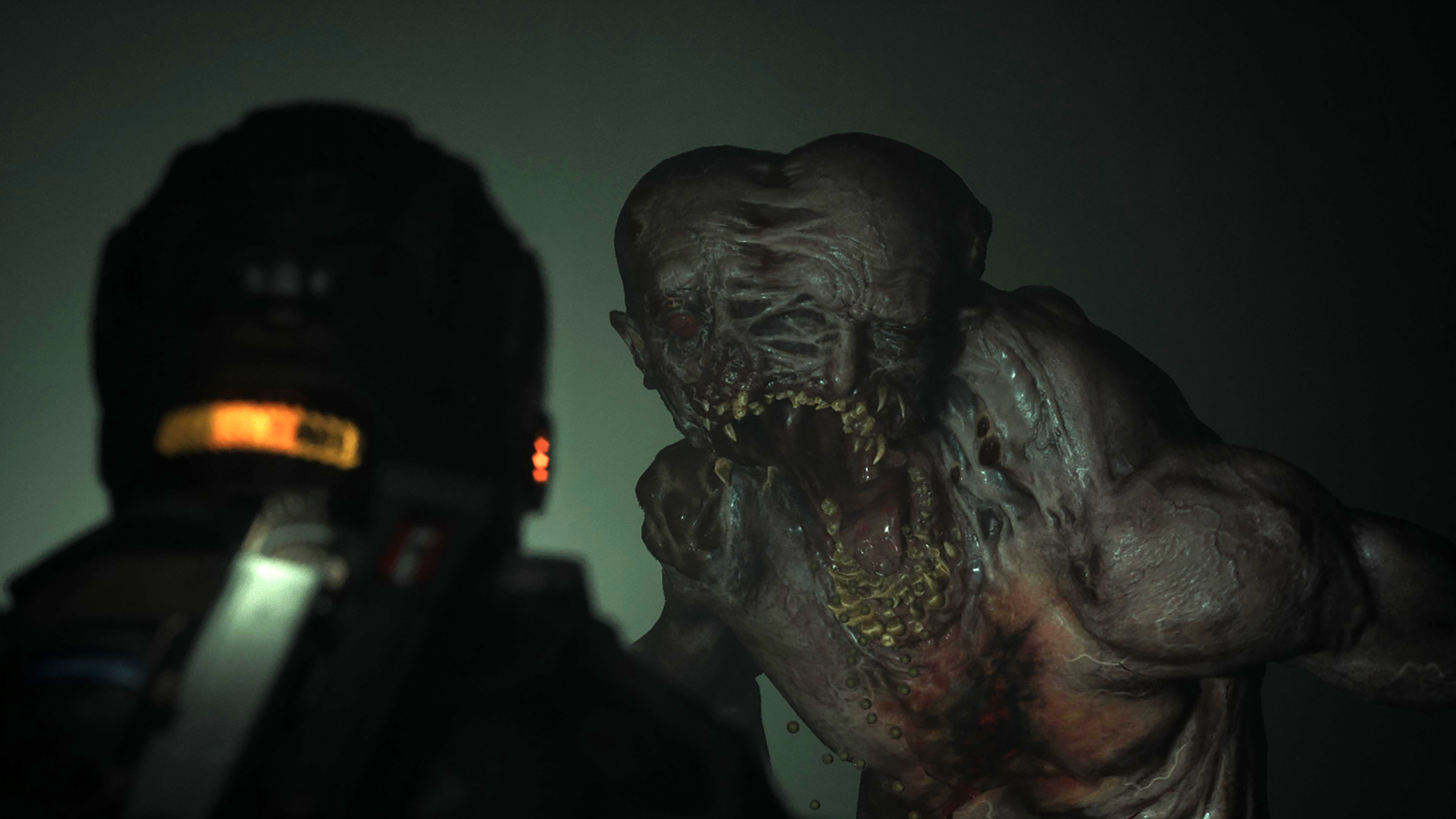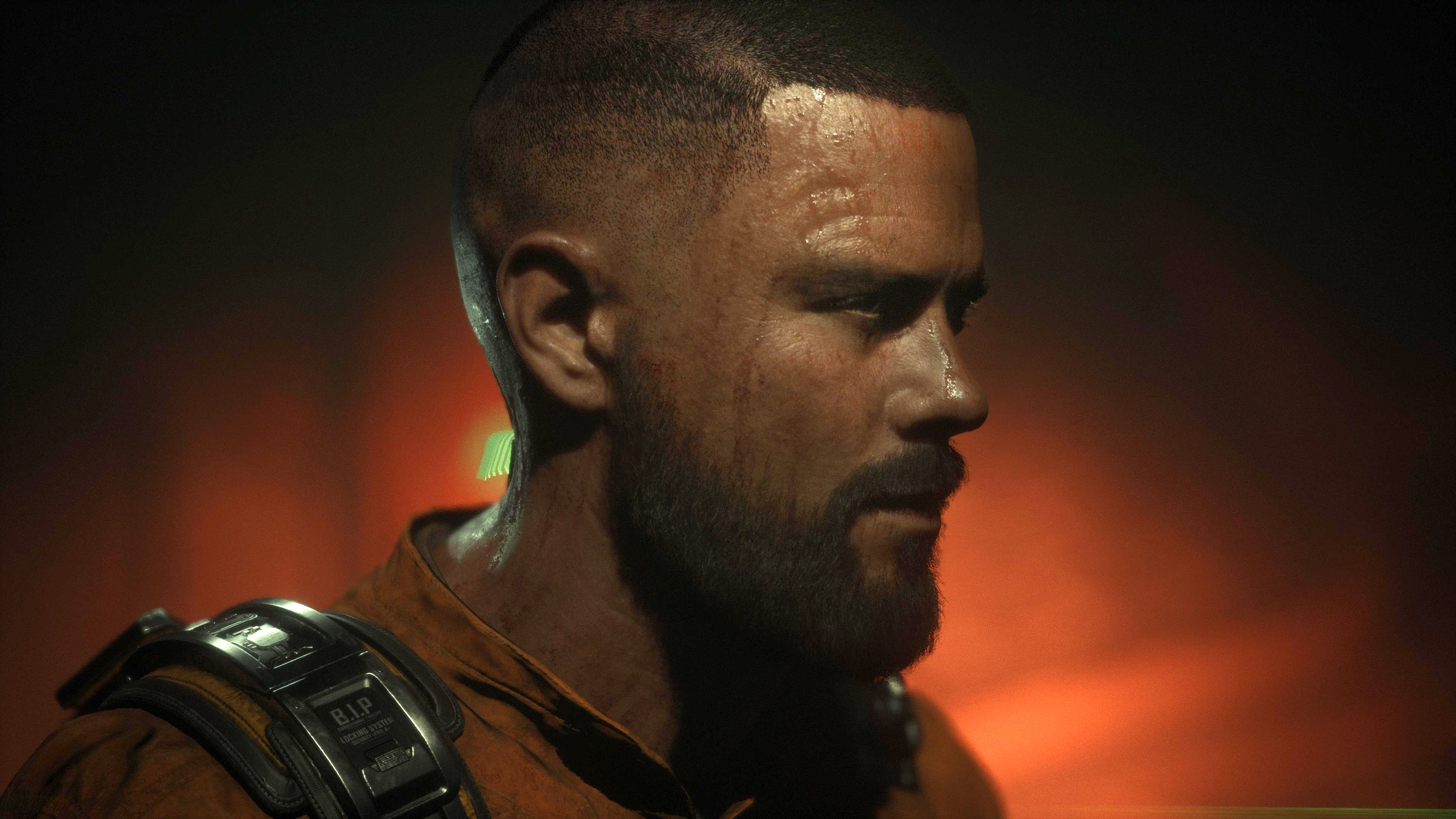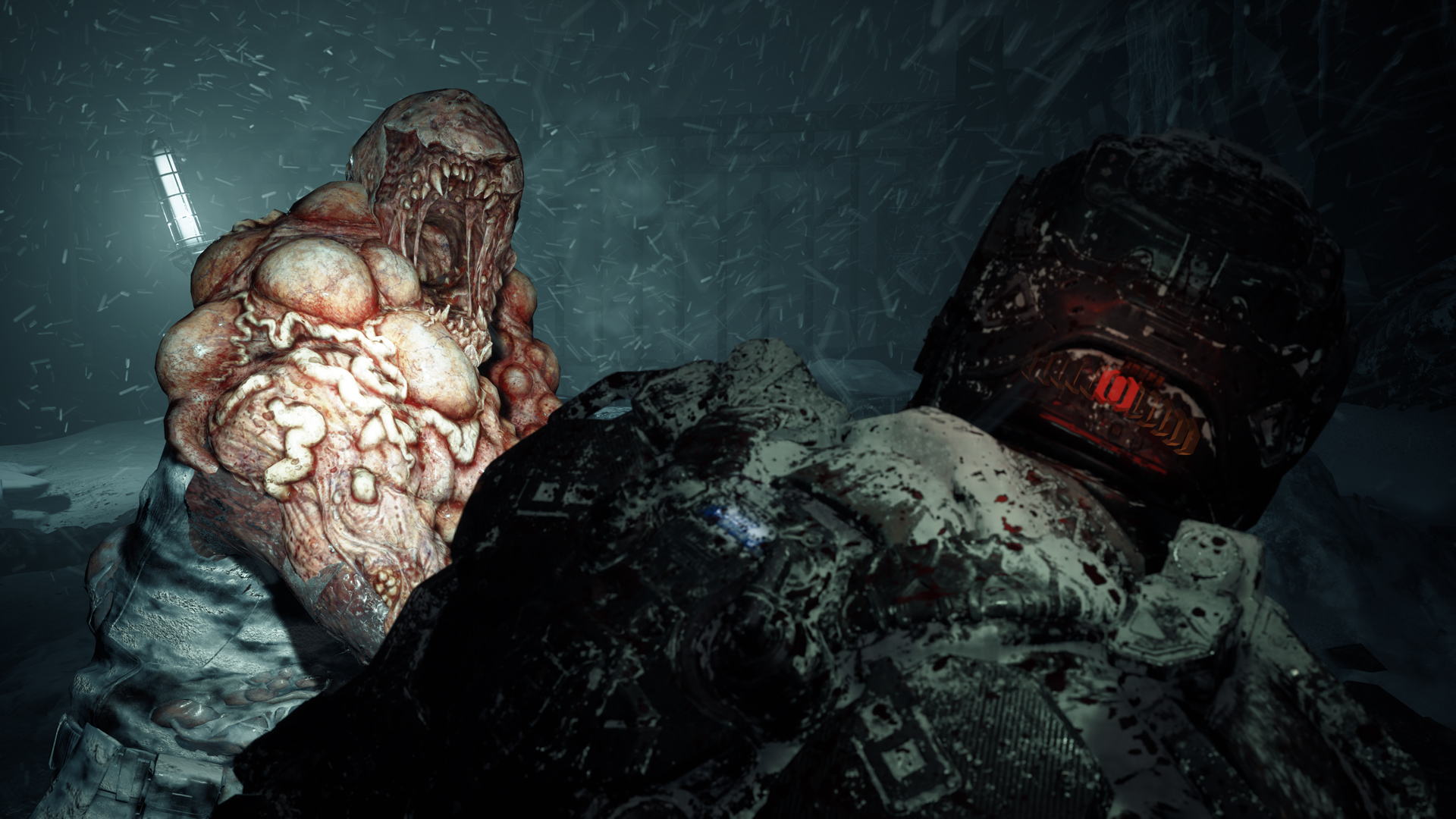Glen Schofield says The Callisto Protocol cost 4x more than Dead Space, needed 3 more months of work, and wasn't meant to be one-and-done: "The discussion we had was ... look at The Witcher"
"I was not feeling good" in the final stretch of development, Schofield says of his health

Dead Space creator and longtime Call of Duty lead Glen Schofield has shared a lengthy post-mortem of The Callisto Protocol, the distinctly Dead Space-esque survival horror shooter he led after founding developer Striking Distance, which didn't meet sales expectations and saw middling reviews in 2022. (Currently: 69 critic score and 6.9 user score on Metacritic. Nice?)
Schofield, who's since left Striking Distance, says the game was unfairly rushed out by the project's overseers, still deserves a sequel, cost four times more than Dead Space to develop, and was initially discussed as the starting point of a series rather than a project that would recoup its full investment in one release.
Speaking with YouTuber Dan Allen Gaming, Schofield, who's lamented the economics of modern game development in multiple interviews, says "Callisto was about four times what Dead Space cost, but yet the cost of the game is I think $10 more. Four times, man. And we're talking about hundreds of people, you know?"

The Callisto Protocol review: "An impressive game derailed by unforgiving combat"
What Schofield really wanted was more time. "I wanted about three and a half more months" of development on The Callisto Protocol, he says. "And I was led to believe, for about three months, that that's the way it was gonna be. In October or September of 2021, I was told, 'You're gonna get the time.' No regrets, that was the term that kept getting used. No regrets, put whatever you want into the game."
Schofield says he spent the 2021 holiday thinking up more ideas, but then "January comes around and some of the folks come over and they said, 'No, no, it's December of 2022.' And I was like, it's not gonna get done.
"It's gonna cost you more money. It's not like it costs you less money because you're getting it out three months sooner," he says. "No, because if I just kept it on the way it was going, I wouldn't have to add anybody. But if you want it done, I've got to accelerate everything by three and a half months, which means I have to jam people on here. If I need 20 people, I actually need to get 30 or 40."

The "folks" who pushed this unrealistic release date through would presumably have come from publisher Krafton, but Schofield says he "really liked working with them for the first couple of years." Rather, "it was really the last year or so" that The Callisto Protocol began to struggle with a familiar problem in the games industry: investors and shareholders.
Sign up to the GamesRadar+ Newsletter
Weekly digests, tales from the communities you love, and more
"We went public and it put an awful strain on the company," he says. "Board of directors and everybody else. They put the strain on us. If you look back, we're the only game that came out from Krafton for four years. We were the brand-new studio. They couldn't even publish us; we had to self-publish." Krafton is listed as The Callisto Protocol's publisher on storefronts like Steam, for instance, but Schofield says the publishing team was incubated within Striking Distance and then became Krafton's western publishing arm.
That last year of development was the worst period of his career, Schofield says. "I was not feeling good," he says of his health, adding that he's lost over 60 pounds since ending the project. If he could go back and change one thing about the production, he says he would demand more time. "Put my foot down: I'm not shipping it. If you want the game shipped, you come take over the studio and ship it."
Once The Callisto Protocol was out, Schofield says the higher-ups "started ignoring me" even as DLC plans continued, so he and the dev team just carried on patching the game, filling holes that were meant to be resolved before release. "We know what we wanted to put in the game and we're just gonna patch it," he says. "Krafton wasn't talking to us. We did 86 patches. That three and a half months, that's what we needed."

With all the unused content and production issues in mind, not to mention a scenario idea he had rolling around his head for a sequel, Schofield says "there should be a sequel" to The Callisto Protocol.
"The fact they're not making [a sequel] is ridiculous," Schofield says of the IP. "We had to cut two and a half bosses out of it, we had to cut three or four enemies out of it." He points to the challenges of the COVID pandemic, which spiked right near the end of the game's development, with entire departments "sick for weeks" at a time. Then came the "great resignation" of 2021, with some 49 people quitting Striking Distance. "I did not think we'd even get the game done," he says.
Schofield actually pitched a sequel, it turns out, but it never got off the ground. It would have been the next part of a series once envisioned as something Witcher-shaped, not in terms of genre but in evolution, seemingly growing and improving with each iteration and, hopefully, one day becoming something big. "I knew it wasn't gonna happen because they were so insistent that they make the money on the first game," Schofield says of the sequel pitch. "And that wasn't the discussion we had at the beginning of all this. The discussion we had was The Witcher. Look at the Witcher. That was the discussion."
The Callisto Protocol might not be getting a sequel, but there are plenty of upcoming horror games for 2024 and beyond.

Austin has been a game journalist for 12 years, having freelanced for the likes of PC Gamer, Eurogamer, IGN, Sports Illustrated, and more while finishing his journalism degree. He's been with GamesRadar+ since 2019. They've yet to realize his position is a cover for his career-spanning Destiny column, and he's kept the ruse going with a lot of news and the occasional feature, all while playing as many roguelikes as possible.


